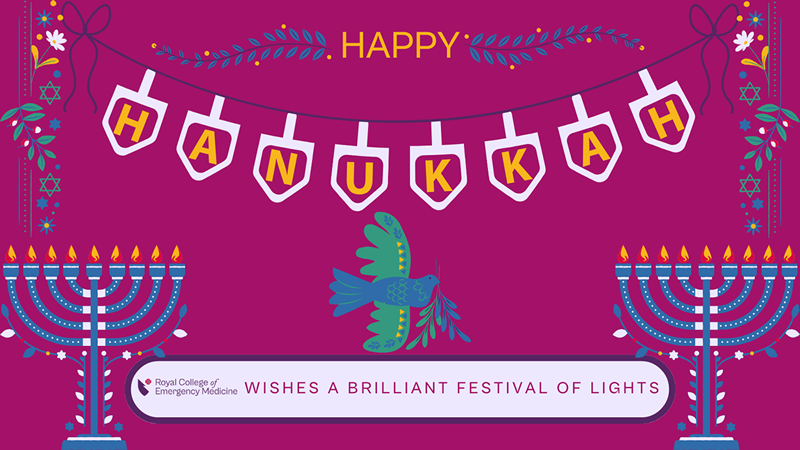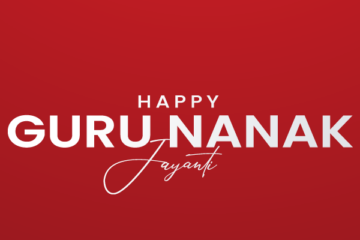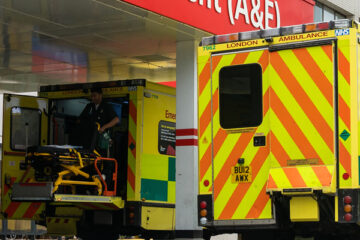Chag Hanukkah Sameach (Happy Holidays)
Hanukkah, or ‘Chanukkah’ in Hebrew – meaning ‘dedication’ – is the Jewish Festival of Lights.
It is observed for eight days from the 25th day of Kislev which is the ninth month of the Hebrew calendar. The dates can vary annually, but fall in late November or early December in the Gregorian calendar. This year, Hanukkah begins on the evening of Thursday 7th December and ends on Friday 15th December.
The festival reminds Jews of a time over two thousand years ago, when a small group of Jews called the Macabees revolted against the Seleucids who were led by King Antiochus so that all Jews could freely practice their religion. At the end of the three-year battle they were victorious, however their Jewish temple was destroyed and desecrated.
All the sacred oil, prepared by the High Priests, was poured out. They found one small vial of oil, only enough for one day. The oil is specially prepared and sanctified olive oil, that takes eight days for the High Priests to prepare.
They carefully cleaned and restored the temple, and to celebrate they lit an lamp. The lamp miraculously burned for eight days even though there was only enough sacred oil to allow it to burn for one day.
So, the miracle, and thus the lesson of Chanukkah, is that, no matter the odds against the Jewish people, God will not let the Jewish people die out – the spark will continue forever.
This is why Hanukkah lasts for eight days and why light is an important part of the celebration. The menorah or nine-branched candelabrum is known as the ‘Hanukkiah’ and represents the lampstand in the temple. Lighting the Hanukkiah each evening is one of the most important traditions of Hanukkah. It can be simple or elaborate but usually there is one candle that sits above or below the others called the ‘shammash’. The shammash (‘helper’ or ‘attendant’) is lit first and used to light the other candles each night. By the final evening all eight candles are lit. A prayer or blessing called ‘Hallel’ is also offered while the candles are lit each night and special songs, such as Ma’oz Tur (a Hebrew poem) are sung afterwards.
The candle lighting begins on the first night with one candle (plus the Shemash), the second night two are lit, and so on, until on the eighth night when all all eight candles are lit.
Other traditions and customs include playing games, eating festive meals and sharing gifts.
There is a special game that families play together called ‘Sevivon’. It involves a spinning top called a dreidel, which is a cube-shaped dice with a Hebrew letter on each of the four sides. The letters make up the initials of the words in the phrase ‘nes gadol haya sham’, meaning ‘a great miracle happened there.’
Hanukkah is a great time for sharing and eating delicious food. Some dishes have special meaning, such as ‘latkes’ (potato fritters) and ‘sufganiyot’ (doughnuts) because they are fried in oil. Cooking and eating this food is a reminder of the miracle of the oil burning for eight days in the temple.
It is a fun time for children, as they will receive presents and gifts of money (Hanukkah ‘gelt’) which is sometimes gifted in the form of chocolate coins wrapped in gold foil. Some families also give each other a small present on each of the eight nights of Hanukkah.
Traditionally the Hanukkiah is placed where it can be seen from the outside, such as a window or doorway, to symbolise the radiation of God’s light to all neighbours and nations.
Across the health service, leaders would be welcome to help celebrate or support Jewish people in this special period – doughnuts are always welcome symbolising the oil that is the centre of the festival. Chanukkah is often a time of contemplation and of the precarious nature of being a Jew. Some hospitals will have a Chanukiah set up somewhere, and Jewish staff and patients would be grateful to be given the opportunity to attend the lighting of the Chanukiah every evening at sunset. Some staff may want to draw a Chanukiah on a whiteboard in the Department, and “light” an extra “candle” each day.
Chag Hanukkah Sameach (Happy Holidays) from all of us at RCEM’s EDI Committee!




0 Comments